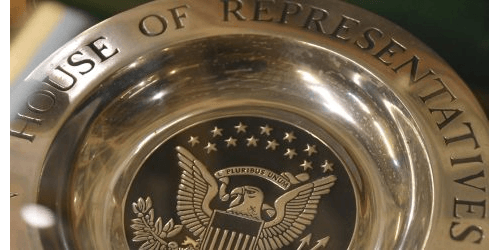
By: Stacy M. Brown, NNPA Newswire Senior Correspondent
@StacyBrownMedia
Shortly after the House Judiciary Committee voted along party lines to impeach President Donald Trump on Friday, Dec. 13, members of the Congressional Black Caucus (CBC) held a conference call with publishers of the National Newspaper Publishers Association (NNPA), the trade association of Black Press publications from around the country.
While CBC members addressed the impeachment proceedings, the call was a reminder that Congress continues to work on other pressing issues.
The call included CBC Chair Karen Bass (D-Calif.), and Reps. Sheila Jackson Lee (D-Texas), Val Demings (D-Fla.), Alma Adams (D-North Carolina), and Bobby Scott (D-Virginia).
HBCUs get the funding they need through bill pending president’s signature
The members discussed the passage of the FUTURE Act, legislation that provides needed funding to Historically Black Colleges and Universities (HBCUs) and other educational institutions.
“Historically Black Colleges and Universities, Tribally Controlled Colleges or Universities, and other Minority-Serving Institutions (MSIs) play a significant role in expanding access to higher education for low-income students and students of color,” said Scott, the Chair of the House Committee on Education and Labor.
“Unfortunately, despite their outsized role in serving our nation’s most underserved students, these schools have historically been under-resourced compared to other institutions of higher education,” Scott stated.
“The FUTURE Act won’t only guarantee at least $250 million per year for HBCUs and MSIs; it will simplify the Free Application for Student Aid (FASFA) and makes it easier for students to access student aid and repay their loans,” Scott continued.
The FUTURE Act, which stands for Fostering Undergraduate Talent by Unlocking Resources for Education, unanimously passed the Senate.
The bill has been sent to the president for his signature.
Through the FUTURE Act, HBCUs will receive $85 million per year – about $1 million per school. American Indian Tribally Controlled Colleges and Universities will receive $30 million annually, while Hispanic-serving institutions will get $100 million per year.
Also, predominately Black institutions will continue to reap an annual payment of $15 million, and Alaska Native and Native Hawaiian-serving institutions will receive $15 million each year. Asian American and Native American Pacific Islander-serving institutions and Native American-serving nontribal institutions each will continue to receive $5 million annually.
“HBCUs and MSIs provide pathways of opportunities for millions of Americans who come from low-income families. As a two-time graduate of North Carolina A&T State University, and a retired professor of 40 years at Bennett College for Women, I as well as all the pupils that I had the pleasure of teaching, are a testament to the power of these schools which mold their students into the leaders of tomorrow,” said Adams, the Chair of the House Higher Education and Labor subcommittee on Workforce Protections
“This agreement will secure $255 million a year for these institutions to serve over eight million students of color, preparing them for careers in our STEM professions,” Adams stated.
The legislation also reduces FAFSA by 22 questions and allows the Internal Revenue Service to directly share applicants’ tax information with the U.S. Department of Education.
“The simplification in the provision was to get information from the IRS to make the applications more accurate,” Scott stated. “If you can get the necessary information from the IRS, there would be more accuracy.”
Impeachment considered necessary
Meanwhile, Jackson-Lee addressed the impeachment vote against Trump.
“Abuse of power and obstruction of Congress,” she said of the two articles of impeachment that the House Judiciary Committee voted in favor of on Friday, Dec. 13.
“What the president was essentially caught doing was attempting to interfere in the 2020 election. So, in terms of the significance of this for our community, the idea that the president would cheat on the election and attempt to get himself re-elected, I think, would change our lives for generations,” Jackson-Lee stated.
She continued:
“If you think about the fact that [re-election] would mean there will be one if not more appointments to the Supreme Court. He has already appointed over 100 judges, and I am sure 99 percent of them would be horrible when it comes to our issues.
“When you think of the dismantling of so much as what we have fought for over these years, the idea that our people would have to endure another term of this President is almost beyond our comprehension.”
Jackson-Lee conceded that the Senate in all probability would not remove Trump, but impeachment in the House was still necessary.
Andrew Johnson, Richard Nixon, and Bill Clinton are the only presidents in American history to have faced impeachment. Nixon resigned before the House could vote. Johnson and Clinton were impeached in the House, but both were acquitted in the Senate.
“We felt that it was so important that we had to put the brakes on him interfering in the election, that even if impeachment was not going to remove him successfully, it was still critical that we did this,” Jackson-Lee stated.




